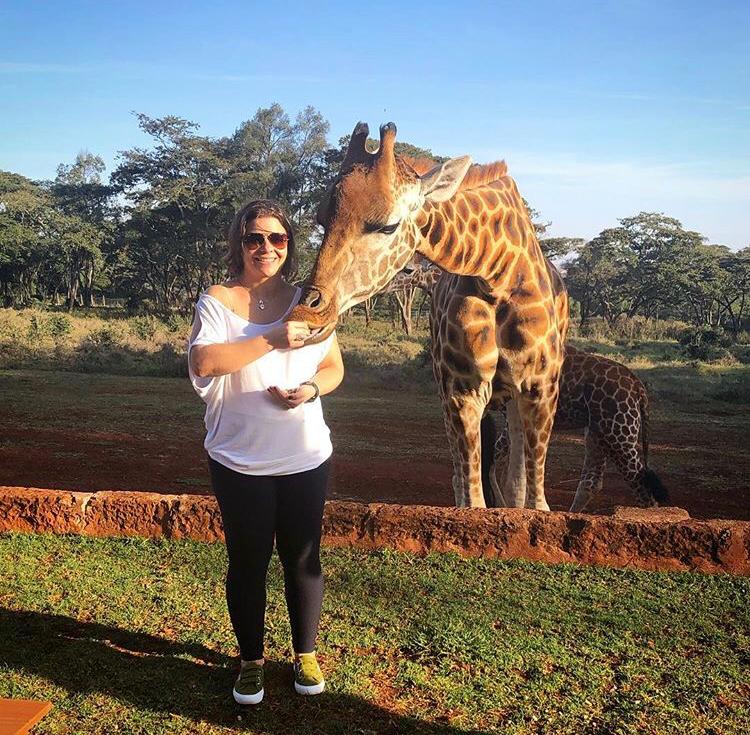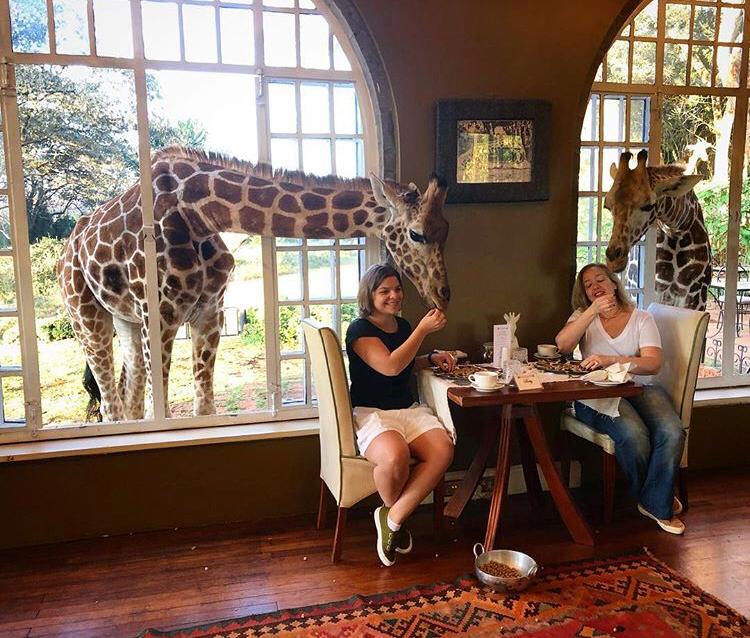Between giraffes – a trip to Kenya
“Being in Africa is already a charming experience in itself: natural beauty, cultural richness and social contrast,” believes Giovana Broccoli, a Terranundi traveler. For her, her trip to Kenya was an incomparable adventure – a full dish for lovers of nature and animals, who can see them up close, “at home”, without cages or bars.

Giovana was able to experience Giraffe Manor, a 12-acre boutique hotel in the suburb of Langata, Nairobi. The historic building dates back to the 1930s, when European visitors first gathered in East Africa to go on safaris. “The Giraffe Manor allows to go back in time. As if we were explorers in 1930 arriving in Africa to see the savannah,” says Giovana.
For her, the differential of the trip to Kenya was the close contact with the giraffes. During the morning or at night, it is possible to be surprised with some members of Rothschild’s herd, the giraffes that live there. They usually stick their long necks in the windows hoping for a gift before retreating to the forest sanctuary.

The elegant animals have been roaming those lawns since the 1970s, when Jock and Betty Leslie-Melville first adopted an orphan Rothschild giraffe called Daisy. “Magnificent, immense, docile animals (mostly wild animals, not pets). The possibility of being able to touch, feed and observe these animals so closely is what makes these experiences unique. Eyes and eyes…”, reports Giovana.
In addition to lodging, partner Terramundi also offers activities for guests and visitors. The safaris are designed for each traveler and it is also possible to explore the wooded suburbs that offer several local craft centers.
Take nothing but memories, leave nothing, not even your footprints
Giraffe Manor works with projects to make sustainable tourism viable. Our Footprint is a conservation initiative that encompasses three areas: wildlife care, environmental responsibility and local community.
The goal is not only to share the incredible natural wonders of East Africa, but also to protect that space. Therefore, they commit to the responsibility to reduce, reuse and recycle – from water and food use to reforestation.
Community outreach initiatives, in turn, cover health care, drinking water supply, women’s empowerment and education to improve the lives of the people who work there.
And, at the same time, they work to protect poached animals and their habitats.